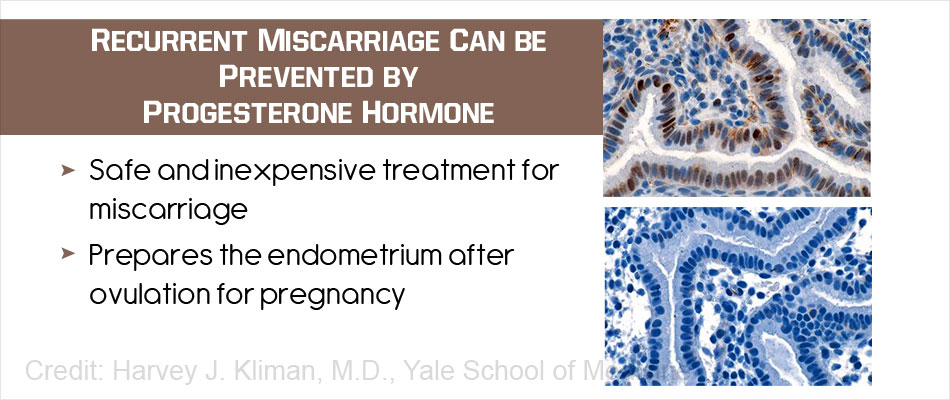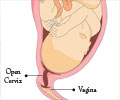
- Miscarriage is a pregnancy loss in women that occurs during the first-trimester.
- Progesterone hormone offers new hope to prevent recurrent miscarriage in women.
- Women with recurrent pregnancy loss can be benefited by the safe and inexpensive treatment option.
Progesterone is a steroid hormone produced by the corpus luteum (temporary endocrine gland). It helps the endometrium to prepare for pregnancy after ovulation.
Research Study
The research team studied the effects of micronized plant-derived progesterone hormone in 116 women who had multiple pregnancy losses.
The Endometrial function test (EFT) was created by Harvey J Kliman, M.D., director of the Reproductive and Placental Research Unit in the Department of Obstetrics, Gynecology and Reproductive Sciences at Yale School of Medicine and was used to determine whether the endometrium is healthy and can sustain the embryo.
The research team also focused on nCycline biomarker which can assess recurrent pregnancy loss in patients.
The scientists believed that progesterone hormone could cause the endometrium to produce more secretions.
Kliman, said, "The endometrium feeds the baby until the eighth week of pregnancy. Then at 9 to 10 weeks the mother's blood takes over to feed the embryo."
"In this subset of women experiencing multiple early miscarriages, we assume that their embryos were literally starving to death".
"They attached, but they were not getting enough food. When we give progesterone back to these women, the endometrium makes more nutrients and prevents their pregnancy loss,” Klimann, added.
The researcher also said, that the endometrial function test with the nCycline biomarker was created initially to identify women with infertility. This study finds that the test could also help to identify patients with multiple pregnancy loss.
Kliman worked along with Mary Stephenson, M.D., and Dr. Theresa S. Falcon-Cullinan Professor of Obstetrics and Gynecology at the University of Illinois at Chicago,director of the University of Illinois Recurrent Pregnancy Loss Program.
Stephenson, said, "We are very pleased to find that these results reinforce the evidence that progesterone could be a very beneficial, inexpensive, and safe treatment for many women with a history of recurrent pregnancy loss."
"The positive results show us that next we need to study progesterone as a treatment for recurrent pregnancy loss with a prospective randomized trial to validate the findings."
Miscarriage
- Miscarriage refers to a pregnancy loss in women that occurs before 20 weeks of gestation.
- According to the American College of Obstetricians and Gynecologists (ACOG), miscarriage is one of the common types of pregnancy loss.
- Hormonal problems, maternal age, lifestyle problems like smoking, drug use, malnutrition can all be a cause for a miscarriage.
- There is a 20-35% chance of miscarriage in women who are between the age of 35-45 years. And a 50% chance of miscarriage in women above the age of 45.
- Eating healthy, exercising regularly and managing stress may help to prevent miscarriage.
- Mary D. Stephenson et.al., Luteal start vaginal micronized progesterone improves pregnancy success in women with recurrent pregnancy loss, Fertility and Sterility; (2017) DOI link: http://dx.doi.org/10.1016/j.fertnstert.2016.11.029
- What Does Progesterone Do? - (http://www.hormone.org/hormones-and-health/what-do-hormones-do/progesterone)
- Progesterone - (https://medlineplus.gov/druginfo/meds/a604017.html)
- Miscarriage - (http://americanpregnancy.org/pregnancy-complications/miscarriage/)














